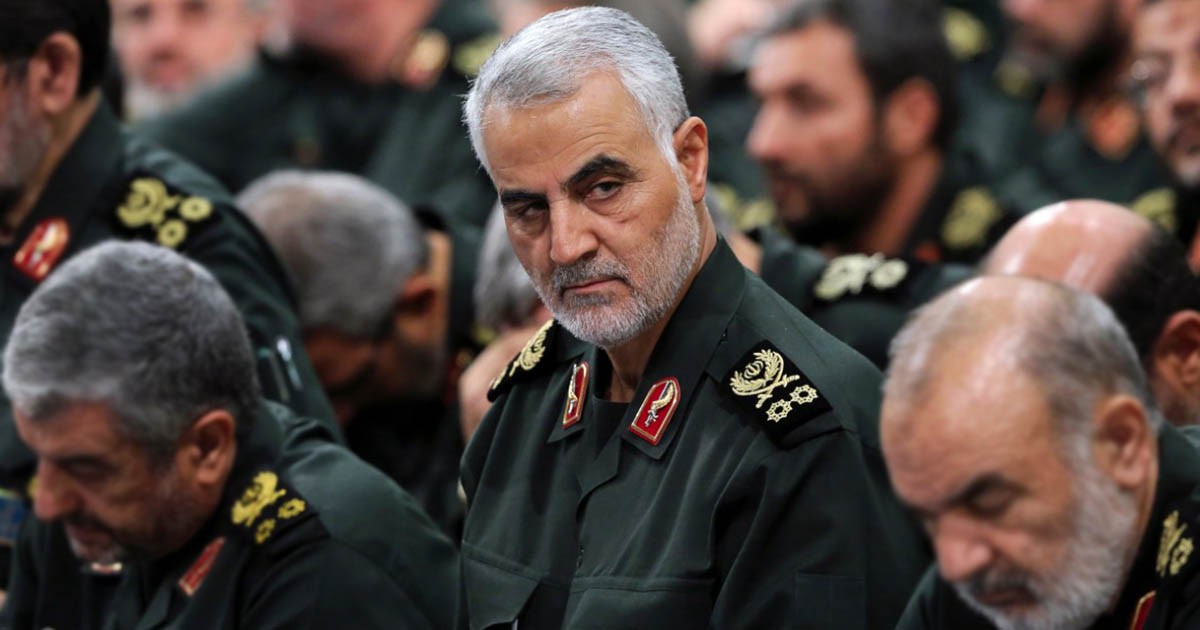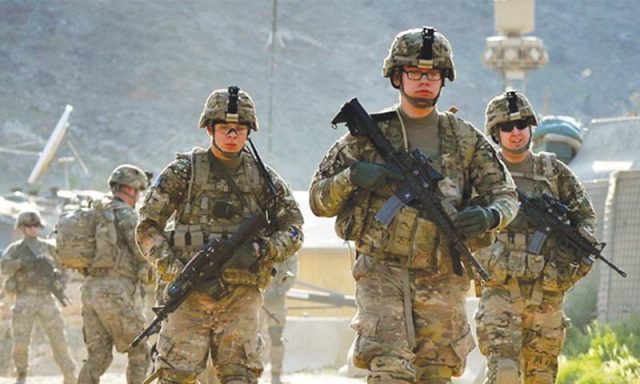Opinion |
How is the late Iranian military commander, Major General Qasem Soleimani viewed in Pakistan? If one was to speculate based on Facebook comments, generally either as black or white. Some regard him as a great soldier of Islam who laid down his life fighting against the US imperialism in the Middle East.
As the commander of the Quds Force, he was considered to have been one of the most powerful figures in Iran and played a prominent role in Iran’s foreign policy in the Middle East over the last decade. Others consider him a renegade whose hand was soaked with the blood of fellow Muslims of the Sunnis sect. The truth perhaps lies somewhere in the middle – it is shades of grey.
The late General as the head of the Quds branch of the Iranian Revolutionary Guards, whose primary mission was to conduct overt and covert military operations abroad to further the Iranian regional and global interest, was a brilliant strategist, revered and idolized by his fellow countrymen.
If Trump does not order reprisal missile attacks inside Iran and Iran does not undertake any further military raid against the USA, the current crisis would defuse
Credited with the decimation of the Daesh in Syria and Levant, his services ought to be acknowledged and appreciated particularly by the Muslim world. On the other hand, he is also blamed for the massacre of Sunni Muslims, particularly in Iraq and Syria. Whether one considers him a savior or villain will partially depend on which side of the political divide one is from.
As a Pakistani, I would judge General Qasem Soleimani solely on his dealings and attitude towards my country. He had publicly accused Pakistan of complicity in attacks against his forces in Iran. Despite complete denial by Pakistan of any involvement, he had issued warnings of severe consequences if Pakistan did not mend its ways.
As the head of the commander of the Quds force, a division responsible for extraterritorial military and clandestine operations, he cannot be absolved of the responsibility of giving Indian agents, terrorists and subversive elements like Kulbhushan Jadhav a free hand to conduct terror raids in Pakistan, particularly in Balochistan and Sindh provinces. Do forgive me if I have mixed feelings about the late General.
Read more: Iran attacks American Base: Will Trump respond?
Qasem Soleimani’s background notwithstanding, his assassination by the US Drone attack is condemnable, without any ifs and buts. Obama’s nuclear deal with Iran had to an extent reduced the tension in the region, but Trump’s unilateral pull out and increasing the economic sanctions have given a degree of legitimacy for Iran to conduct covert military operations against the US interests in the region. Qasem Soleimani was the chief architect of the Iranian covert military actions but his elimination in another country amounts to murder and is a severe violation of all international norms that cannot be condoned.
Iran had vowed to exact swift revenge for the killing of General Qasem through military action and by the firing of a few dozens of missiles at the US military setups in Iraq it has kept its promise. “We do not seek escalation or war, but will defend ourselves against any aggression,” Iran’s Foreign Minister Javed Zarif wrote in a post on Twitter. The Iranian tweet indicates adequate revenge for the murder of their General has been extracted, and no further offensive is on the card in the immediate future.
Read more: “Slap on the face from Iran”: Will American troops leave Middle East?
That the Americans had some early warning about the impending attack and no physical damage to any US soldier or civilian has been reported so far is interesting.
Despite Trump’s rant about bombing 52 Iranian targets if it dared to attack US interest, his tweet following the Iranian missile raid, “All is well” appears to indicate neither side is keen on upping the ante. If Trump does not order reprisal missile attacks inside Iran and Iran does not undertake any further military raid against the USA, the current crisis would defuse. The world, particularly the region, would have then dodged a bullet.
Air Cdre (Retd) Jamal Hussain has served in Pakistan Air Force from 1966 to 1997. He was awarded Sitara-e-Basalat for his services in the year 1982. He regularly contributes articles on defense issues in the Defence Journal from Pakistan, Probe Magazine (Dhaka – Bangladesh) and Dawn, The News, and The Nation English Dailies from Pakistan. He is the author of two books on ‘Air Power in South Asia’ and ‘Dynamics of Nuclear Weapons in South Asia’. The views expressed in this article are the author’s own and do not necessarily reflect the editorial policy of Global Village Space.














